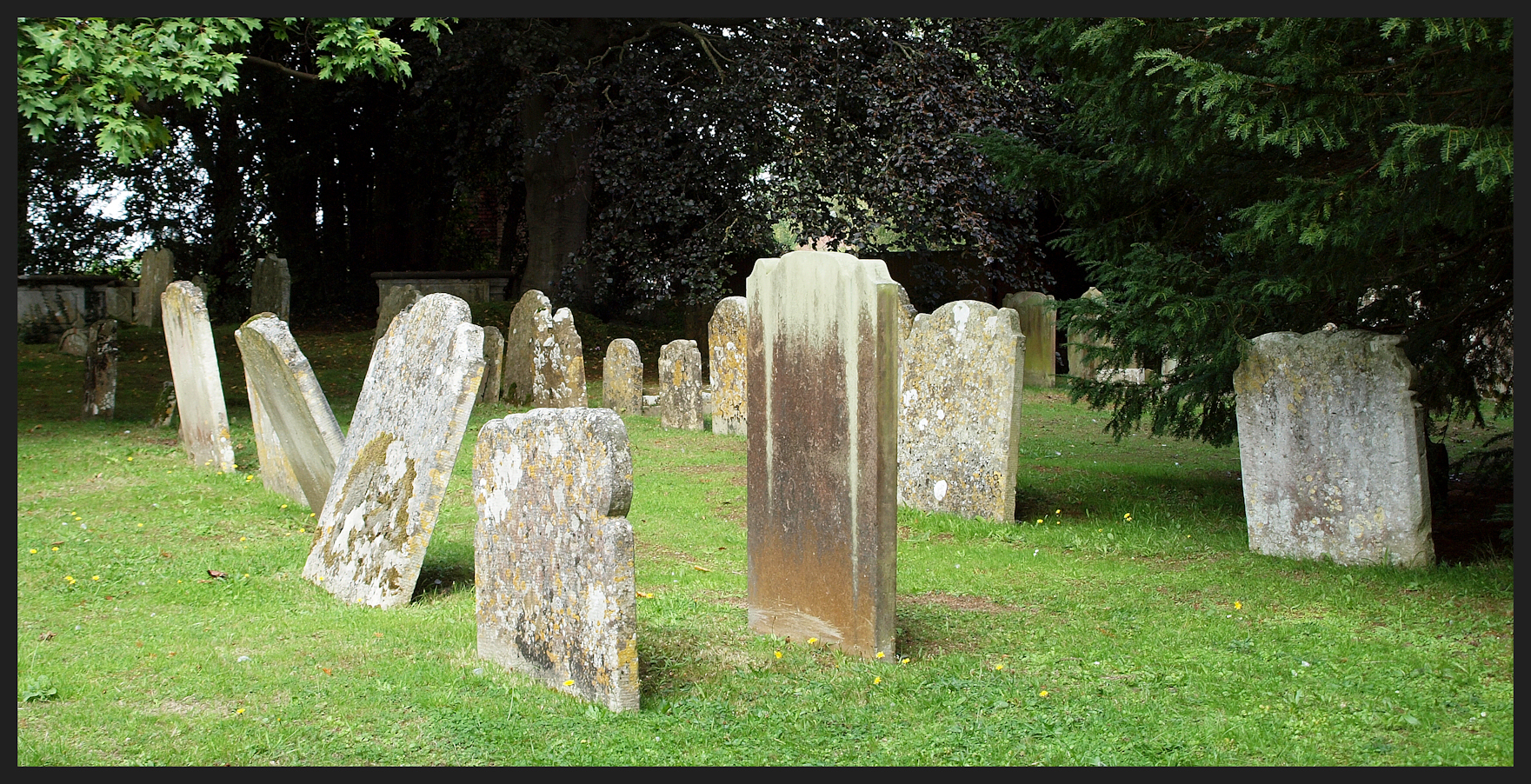Yesterday we had a day out hunting my ancestors — my father’s direct line — in Kent. And what a splendid day, despite not making any new discoveries.
We trotted off from home about 7am and arrived in Goudhurst about 9.30; just in time for coffee and apple cake.
Having been refreshed we pottered on to Benenden from where, if the connections I think are there are right, my family lives for several generations in the early 18th century and probably earlier. Benenden is such a gorgeous village with houses and the church round a large village green which doubles as the cricket ground — just as it should be.
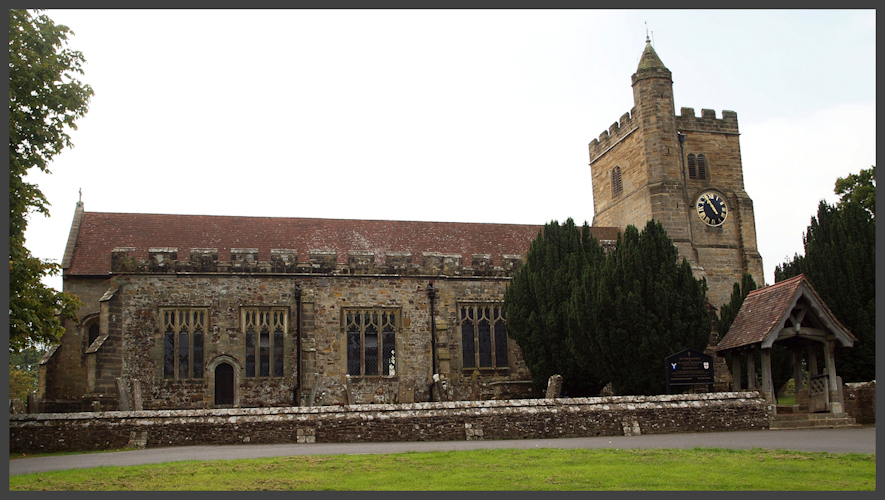
Benenden Church
Then onward the few miles to Rolvenden, where I had higher hopes of finding evidence. What we found first of all was a small farmers’ market in the church. Yes, in the church. Excellent. This is how churches should be used; the more they are used the less they will be vandalised and the less they need to be locked. We were needless to say beguiled and stocked up from a lady selling mostly smoked meats
etc., including some Oak Smoked Mussels. We also succumbed to some bread, tomatoes and a tub of fresh Lemon & Coriander Pesto.
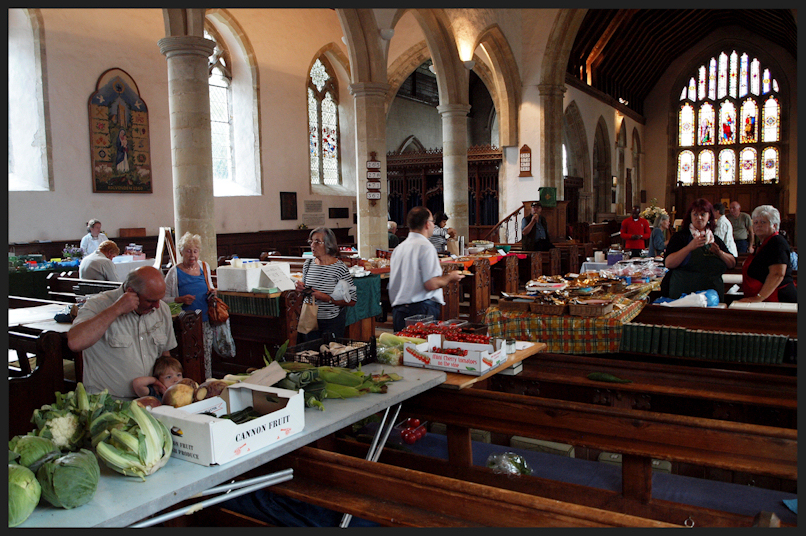
Rolvenden Farmers’ Market
Following this and a look at the interior of the church we adjourned to The Bull for an excellent pub lunch and a pint. Staggering out we looked around the churchyard without luck, as almost every headstone was unreadable. But as we were leaving I did identify the house where my great-grandfather (Stephen Marshall, born 1849) was born and brought up.
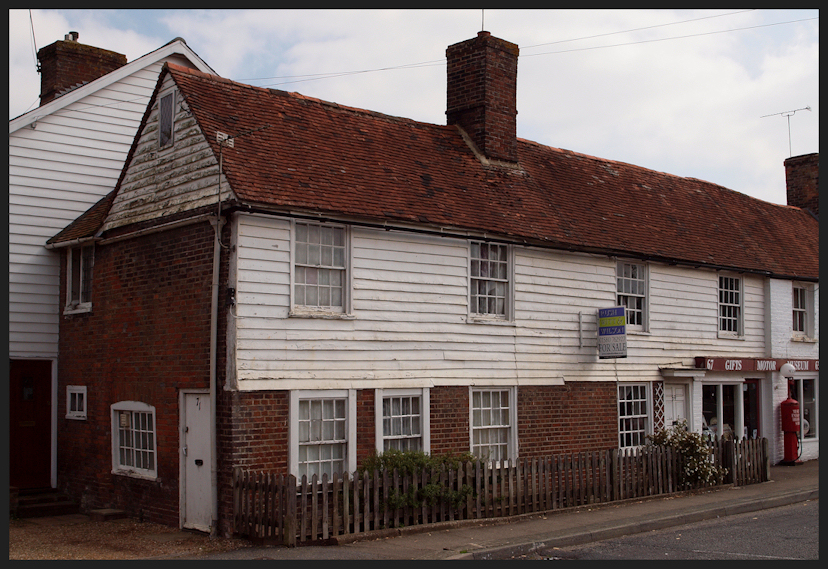
Great-Grandfather’s birthplace in Rolvenden
Next we diverted to Smallhythe where I suspected a connection; and indeed we found a Marshall grave but of a later generation. Smallhythe is delightfully non-existent: about six houses, a vineyard, an early 16th century brick church and Ellen Terry the actress’s amazing Tudor house (now in the care of the National Trust) which was sadly not open. This is a far cry from the days of Henry VIII when he River Rother here was a wide estuary and the local industry was shipbuilding. All that ceased when the river changed course following the great storms of the late 16th century.
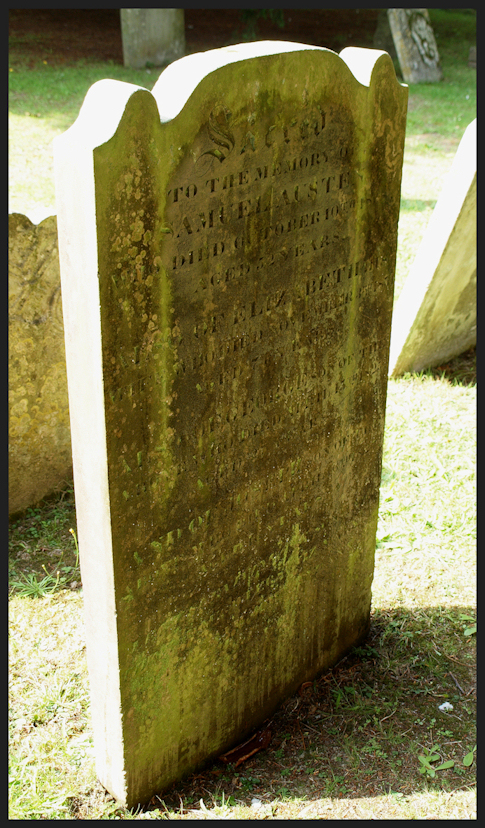
Samuel Austen (GGG-Grandfather) grave at Tenterden
Next on to Tenterden where we managed to find the grave of one Samuel Austen who is one of my ggg-grandfathers who died in 1838. Tenterden is full of Austens, and Jane Austen’s family originate here. Luckily the monuments in Tenterden churchyard have all been recorded as we would have been hard pressed to read the entirety of the headstone.
After a look in the church we were all running out of steam, so a quick drive on to Biddenden in the hope of easier parking and afternoon tea — both achieved. Following tea and cake we were disappointed to find the church locked; the only locked church of the six we tried during the day.
Leaving Biddenden we drove through Sissinghurst and retraced our steps to Goudhurst for a look at the church there and another pint. At this point there was a sudden realisation it was 6pm and we had a 2+ hour drive home round the M25.
OK, I was disappointed not to find obvious evidence to connect my ggg-grandfather Marshall further back, but that was really quite a long shot. It was also disappointing to find a locked church and nowhere selling Kentish apples or plums. But overall an excellent, and very tiring, day.
So now, today, we have a problem. What to do with those Oak Smoked Mussels and the pesto? Thoughtfully I procured a small pack of large prawns at the supermarket this morning (do not ask how we achieved the supermarket before 10.30 this morning!). So this evening I did one of my quick pasta dishes. 150g each of mussels and prawns makes a good feast for two, thus:
1. Cook some pasta; when cooked drain it and keep it warm.
2. Sweat some finely chopped onion and garlic in a little oil until translucent.
3. Add the mussels and prawns and cook for 2-3 minutes.
4. Add the pesto, stir together and cook for another minute or two.
5. Then add the pasta, stir to mix and coat the pasta and cook for a couple of minutes to ensure everything is hot through.
6. Serve and enjoy with a bottle of white wine.
And boy, was it good! The smoked mussels were to die for. As Noreen observed “I’ve eaten much worse in restaurants”.
Cheers, to the ancestors! We’ve come a long way since their days as farm labourers before 1850.




